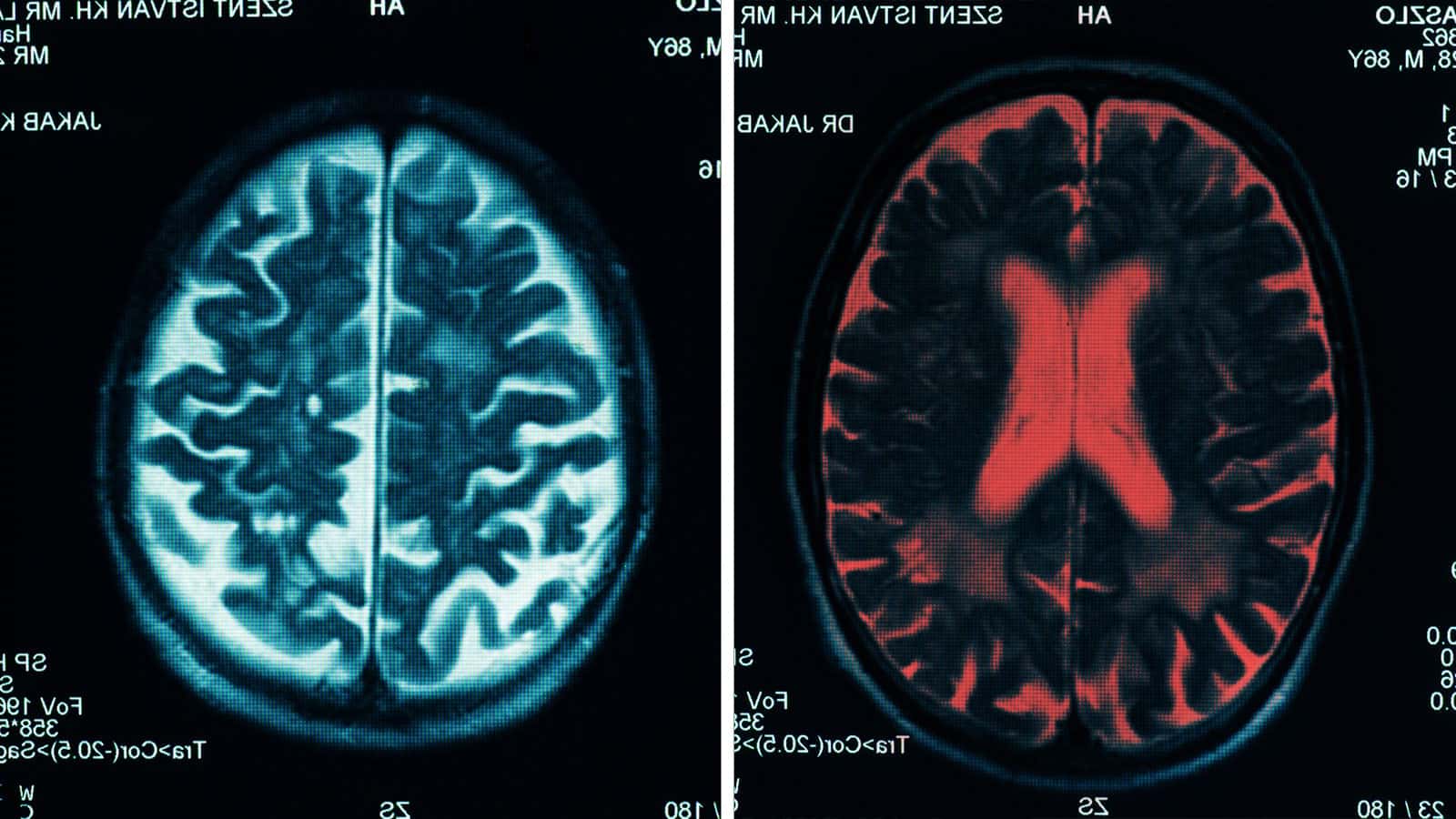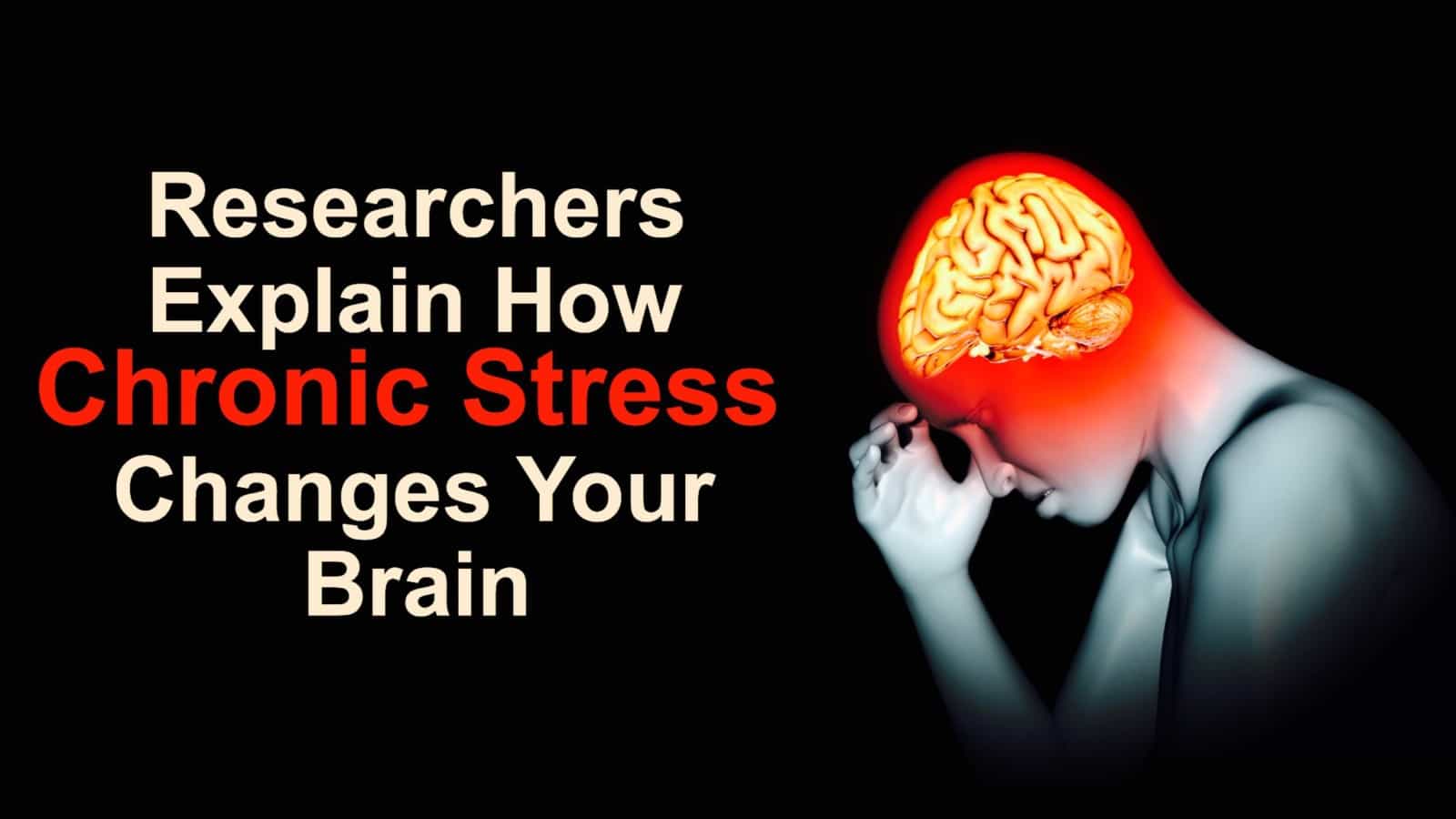It’s no secret that the brain ages with the body. Cognitive decline and all sorts of degenerative disorders can develop as you grow older. The brain, like any other organ in the body, needs to be taken care of. If we fail to do so, it can become sick – just like any other body part.
As you age, neuron communication may grow weaker. Additionally, you might not get as much flow of blood to your brain. You might deal with more inflammation. All these issues contribute to causing a brain to decline.
But did you know that there are things you may be doing to speed up this aging process? Certain bad actions may be responsible for early cognitive decline, and it’s imperative that you know what those actions are so you can avoid them!
Here Are 13 Habits That Make Your Brain Age Faster
1. You Drink In Excess
If you’re a heavy drinker – or even a moderate one – you can damage the hippocampus in your brain. That part of the brain works by helping you learn and bolstering your knowledge. When you have a regular alcohol consumption schedule that puts you at a blood alcohol level of 0.08% or more, not as many nerve cells in this region are produced.
This doesn’t mean you can never enjoy a reasonable glass of wine with dinner, and it doesn’t mean you can never get tipsy on rare occasions ever again. What it does mean is that consuming too much alcohol can certainly cause your brain to suffer when it comes to memory and picking up new skills.
2. You Live A Sedentary Life
If you spend most of your day sitting down and don’t make an effort to get any physical activity in, this sedentary lifestyle could put you at risk of developing dementia when you get older.
Studies have found that people who have good levels of cardiovascular fitness have an 88% lower chance of developing dementia than people who have moderate fitness levels. For those with high fitness who do develop dementia, they will do so more than a decade later, on average. That’s as good a reason to hit the gym as any!
3. You Don’t Maintain Friendships
It’s not uncommon for friends – and even family – to drift apart from each other as time goes on. But when you lose those close relationships, it can grow even more difficult to build new ones as you age.
Studies have shown that senior citizens who regularly attend social activities have a much lower rate of declining cognitively than those who do not socialize. Activities include:
- Visiting family
- Meeting friends
- Watching sporting events
- Attending clubs
- Indulging in social hobbies
This is likely due to the fact that the act of socializing can bring down stress levels, and stress can exacerbate cognitive and neurological problems of all kinds. As such, avoiding social contact is one of the habits that makes your brain age faster.
4. You Neglect Your Heart
Your heart is responsible for keeping so many parts of your body alive and thriving. As such, it’s really not a surprise to state that its wellbeing is linked to the brain. According to Alzheimer’s Association’s Global Science Initiatives, James A. Hendrix, what is beneficial for the brain is the same as what is beneficial for the heart.
Studies have shown that if someone has diabetes, hypertension, or other potentially heart-harming conditions in their middle-aged years, they have a greater risk of developing dementia when they age.
5. You Smoke
Smoking is a bad habit for many reasons, but one of them is the fact that smoking can increase Alzheimer’s disease risk. In fact, it almost doubles those chances.
You may have read studies funded by the tobacco industry stating that cigarettes do not increase this risk. Unfortunately, these pieces of research are highly inconsistent with all scientific findings from studies unaffiliated with the industry; as such, you’ll have better luck believing the unbiased reports.
6. You Don’t Get Enough Sleep
The body requires between seven and nine hours of sleep per night; if you aren’t getting that, you’re doing your health a huge disservice. There are countless downsides that occur when you deprive your body of the rest it needs – and one of them is increasing the risk of cognitive decline.
This is especially true if you’re older. Brain scans and research have revealed that those who don’t sleep enough wind up with ventricle expansion at a quicker rate, as well as a faster downhill slide into cognitive decline. Seven hours a night is your best bet when it comes to resting for positive results.
7. You Are Harming Your Hearing
Are you looking after your hearing? Or do you blast your headphones just a little too loudly? Studies have found that senior citizens who experience hearing loss have a higher chance of experiencing cognitive decline – specifically dementia – as they age. Researchers theorize that the loss of hearing could lead to the following problems:
- Overly straining or focusing on sounds in an attempt to hear better
- Social isolation, which can increase risk of dementia
Essentially, more studies do need to be conducted in order to fully understand the link between these two factors, but it’s safe to say that damaging your hearing will not have a positive effect on your brain.
8. You Live Next To A Highway
Surprisingly, where you live can have an adverse effect on your health; if you live near a highway, for instance, you may want to consider moving. This is due to the high pollution levels around these locations, which cause you to be exposed to particulates that can damage your health.
Research has indicated that being exposed to bad, polluted air for long periods of time can alter the structure of your brain, leading to damage and impairment that constitutes cognitive decline. Your home is likely where you spend most of your time, and as such, residing near a source of pollution can be highly detrimental.
9. You Don’t Relax Enough
Relaxation is crucial to health in the same way that too much stress is harmful to it. Those who deal with anxiety, chronic stress, and other areas that affect mood and positive thinking are more likely to develop Alzheimer’s disease by:
- 33% in those with mild anxiety
- 78% in those with moderate anxiety
- 135% by those with severe anxiety
People who suffer from anxiety must be extra-vigilant and communicative with their medical practitioners about memory issues and other signs of cognitive decline. Slowing down, practicing self-care, and taking time to do what you enjoy can help relieve your stress and keep your brain healthy.
10. You Don’t Wear A Helmet
If you go skiing, biking, skating, or another similar sport and don’t wear a helmet, you’re putting yourself at the risk of a serious head injury in the event of a fall. Traumatic brain injuries, known simply as TBIs, can cause serious harm to you and your brain, speeding up the aging process.
Hold your positive thinking, though. You can get better and heal from TBIs; however, you still have a 24% higher risk of developing dementia. Even mild injuries can have these results. Getting a brain injury early in life is even worse – a TBI in your twenties can lead to a 60% increase in dementia risk by the time you turn 50.
11. You Don’t Eat Well
Eating well can prevent countless different kinds of diseases, including cognitive ones that come about with age. Those who eat healthy diets can decrease their Alzheimer’s disease risk by an impressive 53%, while those who eat relatively well can enjoy a 35% risk decrease. Some examples of the best kinds of food to keep your brain young are:
- Berries (especially blueberries)
- Vegetables (especially leafy greens)
- Fish
- Nuts
- Beans
- Healthy fats
- Poultry
- Wine (yes, but in moderation)
Remember to speak to a doctor before making any changes to your regular diet, especially if the change will be relatively drastic.
12. You Don’t Exercise Your Brain
Yes, brains need to work out, too. Without regular mental training, it’s easy for the brain to lose its sharp thinking skill. Those who regularly train their minds are 29% less likely to develop dementia than those who don’t.
Some research also suggests that those who regularly work out their brains after the onset of cognitive decline can potentially slow the process down, or even bring it to a halt. Still, more studies are needed before a conclusive finding can be drawn.
There’s nothing home with needing to just unwind and veg out, so to speak, after a long day. But your default free-time activity shouldn’t be something that involves little to no thinking skills of any kind. Here are some ideas:
- Playing chess
- Doing word puzzles (like crossword)
- Doing number puzzles (like Sudoku)
- Learning new skills
13. You Stop Learning
Not everyone enjoys studying, but learning in itself can be a wonderful thing. You can expand your horizons and, more importantly, keep your brain in good working order.
When you take the time to learn new skills and acquire more knowledge, your brain grows stronger and more resilient. It adapts to the process of learning and gets the exercise it needs to stay strong, flexible, and healthy.
Research also suggests that those who have reached higher education levels tend to experience lower risks when it comes to developing dementia and other cognitive issues. However, it could be a case of correlation instead of causation, as those with higher education levels can often afford a higher standard of living.
Final Thoughts On Some Habits That Make Your Brain Age Faster
Cognitive decline is often considered part and parcel of growing older – but it doesn’t have to be. By steering clear of these negative habits and ensuring that you maintain positives ones, you will likely be able to negate a lot of the risk of developing disorders like Alzheimer’s disease and dementia.
Keep in mind that your brain needs exercise and health to stay young and fit, just like the rest of your body. After all, it is responsible for all your bodily functions. If you want to live a happy, healthy life, we can think of no better place to start than with your brain.














 Community
Community

